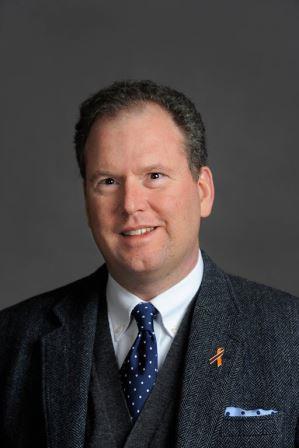
Dr. Ahmet Alibašić holds Ph. D. in Political Science and was educated in Kuala Lumpur and Sarajevo.
Currently he is Assistant Professor at the University of Sarajevo teaching Islamic culture and civilization courses. He is also director of the Center for Advanced Studies in Sarajevo. He is actively involved in inter-religious dialogue and served as the first director of the Inter-religious Institute in Sarajevo (2007-2008). He has authored several articles and edited books dealing with Islam in Europe, democratization of the Muslim World, human rights in Islam and Muslim world, and church-state relations. Most recently he is one of the editors of Yearbook of Muslims in Europe(Brill, 2009-2013) and Journal of Muslims in Europe. He also has experience in international consultancy in Public Administration Reform in the SE and East European countries.

Kurt Bassuener is co-founder and Senior Associate of the Democratization Policy Council (DPC), under whose aegis he has published numerous policy briefs, papers, and studies. He has worked professionally on Bosnia and wider Balkan policy since 1997 and resided in Sarajevo since 2005. He has also contributed various analyses and opinion pieces to numerous publications.He also co-authored (with Amb. Jeremy Kinsman) the Diplomat’s Handbook for Democracy and Development Support, a project of the Community of Democracies. As the project’s Research Director, he authored or co-authored Handbook case studies on Belarus, Burma, Chile, China, Egypt, Ukraine and Zimbabwe. His PhD research at the University of St. Andrews beginning in 2016, will focus on the functional dynamics of postwar power-sharing in Bosnia, Macedonia, and Lebanon. He received his MA in European Studies at the Central European University in Prague in 1994 and his BA in International Relations at America University’s School of International Service (1991).

Sharon Fisher is Senior Principal Economist with IHS in Washington, D.C. In that role, she provides economic and political analysis, risk assessment, and forecasting on a number of countries in Central and Eastern Europe. During the mid-1990s, she spent four years as an analyst at the RFE/RL Research Institute in Munich and the Open Media Research Institute (OMRI) in Prague. Fisher has presented her work at numerous conferences and seminars in Europe and the United States, and her extensive list of publications includes the 2006 book Political Change in Post-Communist Slovakia and Croatia: From Nationalist to Europeanist (Palgrave Macmillan). Dr. Fisher served as an adjunct professor at the Paul H. Nitze School of Advanced International Studies (SAIS) in 2013-15.

Stefanie Frease worked on international criminal investigations for 15 years in the Balkans, South-East Asia and Africa. She was Special Advisor to the Prosecutor for the UN’s International Criminal Tribunal for the Former Yugoslavia, she initiated the Darfur investigation for the International Criminal Court and consulted on matters related to political violence in Kenya, Uganda and the Ivory Coast. Her last overseas position was in South Sudan (2009-2011) where she was Deputy Chief of Party on development issues. In 2011 she returned home to Seattle where she is currently an investigator with the Washington State Attorney General’s Office. She serves as a member of the Board of Democratization Policy Council and the Center for Human Rights, University of Washington, Seattle, WA.

Toby Vogel is a writer on foreign affairs based in Brussels. In 2007-14, he was a political reporter with the newsweekly European Voice (now defunct), and previously associate editor with Transitions Online (www.tol.org) and a regular contributor to RFE/RL’s “Newsline”, based in Sarajevo. He has worked with the International Rescue Committee and the United Nations Development Programme in New York, Bosnia-Herzegovina, and Kosovo and holds degrees in philosophy from the University of Zurich and in political science from the New School for Social Research. He is a senior associate of the Democratization Policy Council (Washington, D.C., and Berlin) and in 2003 was a Mellon Foundation fellow in humanitarian action at City University New York.

Bodo Weber is a Senior Associate of the Democratization Policy Council concentrating on the Western Balkans, German and European foreign and security policy, transatlantic relations, Ukraine and Turkey. Within the area of Western democratization policy he has specialized on rule of law promotion, police reform and decentralization He also works as a political consultant for political foundations and international organizations in Germany and the Balkans. In the 1990s, he worked as an editor with Perspektiven (Frankfurt/Main), a journal, and served as a board member of the Bosnien-Büro Frankfurt. He has published numerous articles and analytical papers on EU & US Western Balkan policy and frequently appears in regional media. He is the co-author of two Bosnia security studies and author of The crises of the Bosnian-Herzegovinian universities and the perspectives of junior scholars, Friedrich-Ebert-Stiftung, Sarajevo 2007. Weber has an MA in political science from the Johann-Wolfgang-Goethe-University in Frankfurt/Main. He lives in Berlin.

Eric A. Witte is a co-founder, board member, and senior associate of the Democratization Policy Council. With Kurt Bassuener, he co-founded DPC’s forerunner, the Democratization Policy Institute. Witte works at the Open Society Justice Initiative as the senior project manager for national trials of grave crimes. He has served as external relations advisor to the president of the International Criminal Court and as political advisor to the prosecutor of the Special Court for Sierra Leone. He previously worked in Washington, DC at the Coalition for International Justice and the International Crisis Group. Witte has published widely on issues of democratization policy and international criminal justice. He has a Magister Artium degree in political science from the Universität Regensburg, Germany.
